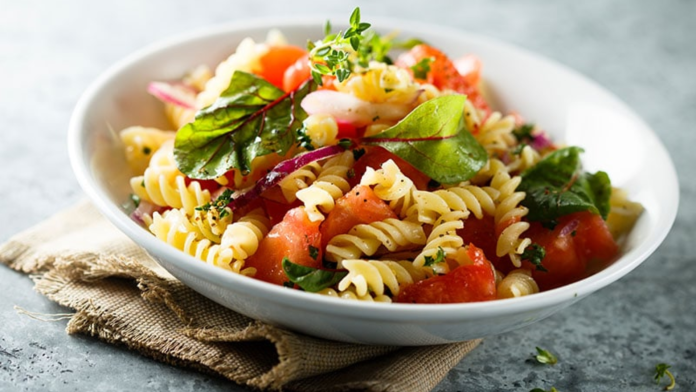In the realm of culinary delights, pasta salad has secured a prominent place as a refreshing and versatile dish, loved by many. Often served chilled, it has become a staple at picnics, potlucks, and outdoor gatherings. However, a shocking revelation has emerged, highlighting a hidden danger associated with serving chilled pasta salad. Experts in the field have uncovered surprising facts that challenge our perceptions and raise concerns about the potential risks involved. This article aims to delve into the depths of this revelation, exploring the reasons behind the danger and offering insights that may alter the way we view and handle pasta salads.
The Appeal of Chilled Pasta Salad:
To comprehend the significance of the hidden danger, it is crucial to understand the popularity and appeal of chilled pasta salad. This beloved dish offers a harmonious blend of flavors, textures, and colors. The combination of al dente pasta, crisp vegetables, tangy dressings, and assorted toppings creates a refreshing and satisfying culinary experience. The convenience of serving it cold further enhances its desirability, especially during warm weather or as a make-ahead option. However, the revelation suggests that there is more to chilled pasta salad than meets the eye.
The Hidden Danger: Bacterial Growth:
The shocking revelation centers around the potential for bacterial growth in chilled pasta salad. According to experts, the nature of the ingredients, temperature abuse, and inadequate storage conditions can create an environment conducive to the proliferation of harmful bacteria, particularly Bacillus cereus. This bacterium is notorious for causing foodborne illnesses, ranging from mild gastroenteritis to severe vomiting and diarrhea.
One contributing factor is the high moisture content present in pasta salads, which creates an ideal breeding ground for bacteria. Moreover, the inclusion of perishable ingredients such as mayonnaise, dairy-based dressings, or seafood further amplifies the risk. Temperature abuse, such as leaving the salad at room temperature for extended periods, allows bacteria to multiply rapidly.
Another concern is the lack of awareness regarding safe storage practices. Many people are unaware of the importance of promptly refrigerating pasta salad after preparation or how long it can be safely stored. Leaving it unrefrigerated for too long can lead to bacterial growth, increasing the likelihood of foodborne illnesses.
Prevention and Safe Handling Measures:
To mitigate the hidden danger associated with serving chilled pasta salad, it is essential to adopt proper prevention and safe handling measures. Firstly, it is crucial to ensure proper hygiene during the preparation process. Hands should be washed thoroughly, surfaces sanitized, and ingredients stored correctly to prevent cross-contamination.
Secondly, attention must be given to temperature control. After preparation, pasta salad should be promptly chilled and stored at a temperature below 40°F (4°C). This prevents the growth of bacteria and maintains the freshness and quality of the dish. Additionally, it is advisable to divide large portions of salad into smaller, shallow containers for faster cooling.
Moreover, it is crucial to follow the “two-hour rule.” This rule dictates that perishable foods, including pasta salad, should not be kept at room temperature for more than two hours. Beyond this duration, bacteria can multiply to dangerous levels. When serving pasta salad at outdoor events, utilizing ice packs, coolers, or refrigerated buffet tables becomes imperative.
Furthermore, careful consideration should be given to ingredient selection. Opting for non-perishable or easily perishable alternatives, such as vinaigrette-based dressings instead of mayonnaise-based ones, can reduce the risk of bacterial growth. Regularly inspecting and discarding any pasta salad that has been stored for too long is also essential.
Final Thoughts:
The shocking revelation of the hidden danger associated with serving chilled pasta salad challenges our preconceived notions about this popular dish. The risk of bacterial growth, particularly Bacillus cereus, poses a threat to food safety and can lead to foodborne illnesses. However, by understanding the contributing factors and adopting proper prevention and safe handling measures, we can minimize these risks significantly.
It is crucial for individuals, food establishments, and event organizers to prioritize food safety and educate themselves and others about the potential dangers lurking within chilled pasta salad. By implementing proper hygiene practices, adhering to temperature control guidelines, and choosing ingredients wisely, we can continue to enjoy this delightful dish without compromising our health and well-being. Let this revelation serve as a wake-up call, reminding us all of the importance of responsible food preparation and handling.





